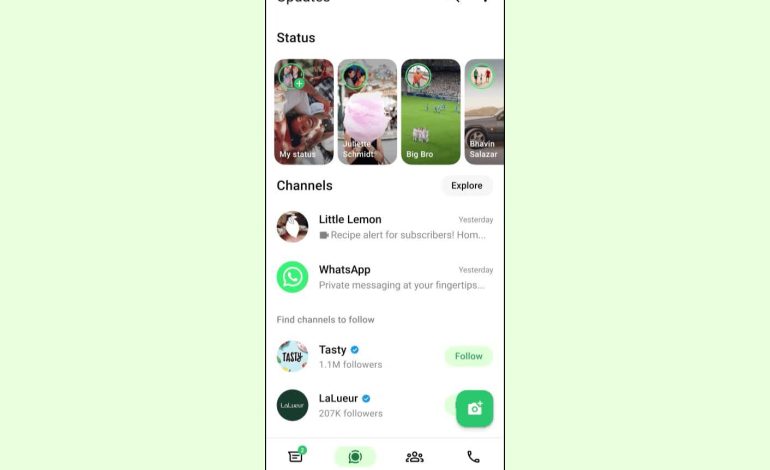Meta-owned messaging platform WhatsApp announced on Monday that it is launching advertising features within its app for the first time, marking a significant shift in its approach to monetization.
The ads, along with new paid subscription tools, will appear in the app’s Updates tab and not within users’ private chats.
The global rollout includes three new ad features aimed at businesses and content creators. Among them are status ads, which are similar in format to Instagram Stories and will appear in the Status section under the Updates tab. Additionally, businesses will be able to promote their Channels—one-way broadcast feeds launched last year—to gain visibility when users search within the app. Channels will also now be able to offer paid monthly subscriptions for exclusive content.
Meta said it will begin taking a 10% commission on subscription fees, although the timing for this has not been finalized. App store fees may also apply, depending on the platform used and business size.
To preserve user privacy, Meta emphasized that these ads will not appear in personal messaging threads and that WhatsApp’s messages, calls, and statuses will remain end-to-end encrypted. Instead, ad targeting will rely on basic user information such as location, device language, followed channels, and ad interaction history. However, users who have linked their WhatsApp account with Facebook or Instagram may receive more personalized ad experiences across Meta platforms.
“Thinking through the lens of privacy was incredibly important for how we thought about bringing these features to market,” said Nikila Srinivasan, vice president of business messaging at WhatsApp. “Your personal messages, calls and statuses, they will remain end-to-end encrypted.”
WhatsApp CEO Will Cathcart echoed this point, assuring users that their inbox will remain unchanged if they primarily use the app for personal messaging.
“We work hard to protect the privacy of people’s communications,” Cathcart said.
The move signals a new chapter for WhatsApp, which has historically resisted advertising. Its co-founders, Jan Koum and Brian Acton, were known for their anti-advertising stance and left the company years after it was acquired by Meta (then Facebook) in 2014 for $19 billion.
Meta’s decision to introduce ads now comes amid rising demand to turn WhatsApp into a more revenue-generating platform. With more than 3 billion monthly users globally—including over 100 million in the US—WhatsApp has grown into one of Meta’s largest but least monetized products. By comparison, other Meta platforms like Facebook and Instagram already generate significant income through advertising.
The Updates tab, which includes Status and Channels, attracts about 1.5 billion users daily, according to the company. Meta believes this area offers a suitable space for businesses to engage with users without disrupting the core messaging experience.
Some analysts view this as part of a broader trend in social media, where user engagement is shifting away from public feeds and toward private messaging and stories-style content.
“The feed is dying, public sharing is down, and people are retreating into DMs and Stories,” said social media expert Matt Navarra.
However, the rollout may face scrutiny, particularly in regions like the UK and Europe, where WhatsApp is primarily viewed as a private messaging tool. Critics caution that introducing too many features associated with Meta’s other platforms could lead to user dissatisfaction.
While Meta says these changes will be implemented cautiously and with privacy in mind, the company acknowledged ongoing concerns.
“You can’t delete the channels button, you can’t delete the Updates button, you can’t delete the calls button,” Cathcart said. “We also don’t want to have a service that has lots of settings—that’s complexity too.”
BBC, CNBC, the New York Times, the Financial Times contributed to this report.










The latest news in your social feeds
Subscribe to our social media platforms to stay tuned